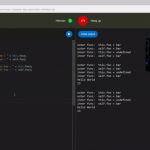How To Ace A Data Science Interview
Interviewing for a data science job? You have your work cut out for you. The data science interview is a complex beast, with behavioral questions mixed in with a bunch of technical questions. Considering how competitive the field is, you’ve gotten pretty far if you’re able to land an interview in the first place, but you still have further to go—and that can be daunting.
But you can still totally nail it. Here’s how to prepare for each step of the process.
1. The Phone Screener
As is true in many industries, a phone screener is typically done by somebody in HR and acts as a filter to save hiring managers time. In this call, you’ll want to get a sense of what problems the data team is facing and the organizational structure of the team you’re applying to. Come prepared with thoughtful questions that demonstrate a deep understanding of the business and the space they operate in, and be prepared to ask them at the end of the call.
2. Take-Home Assignment
After the phone screening, companies often send candidates a prepared assignment, and it’s usually timed. This is a good way to weed out candidates who may be technically weak, or who may not be committed enough to the opportunity to invest a lot of effort in the recruitment process. Some companies skip this step, but those that include take-home assignments often use it as a testing bar (again) to save their hiring managers time.
As you complete the assignment, try to see how it relates to what problems the company is undergoing. Using the assignment as a way to see what kind of skills the company is interested in, and how it’s thinking about your role, may also help you keep your perspective and maximize the time you spend on the test. This is the first chance you’ll have to show your technical chops and creativity in problem solving. It’s where you can really shine in a hiring process and show how you’re different from other candidates.
3. Phone Call With A Hiring Manager
After this stage, you may be asked for another phone call, which will include either mathematics and statistics questions or coding questions. Sometimes this is done in one long call; other times, it’s broken up into three short calls of about 30 minutes each.
The mathematical/statistical phone call. You’ll be evaluated on core mathematical and statistical concepts here, which will depend somewhat on the role and company you’re applying for. Web companies tend to focus on your knowledge of A/B split testing, your understanding of how p-values are calculated, and what statistical significance means. Energy companies, for instance, might test you more heavily on regression and linear algebra. No matter what type of interviewer you’re talking with, you’ll want to sketch out the entire thought process behind your problem solving—not just show that you can get to a satisfactory answer.
The coding phone call. This part of the interview process is fairly typical and is also the closest to other types of technical interviews. You’ll be evaluated over the phone on your ability to solve coding challenges by presenting either pseudo code, or in tougher interviews, ready code. If you’re applying for a data analyst position, this will swing more toward asking you how you’d think about querying data with SQL. Otherwise, you’ll be asked questions in the programming and scripting languages you’ve claimed experience in, from Java to Python.
Call with the hiring manager. Finally, you’ll be patched through to the hiring manager, who is now evaluating you on how well you communicate and whether you’d fit well on the team. Most hiring managers already have a sense of the type of team member they’re looking for. So the more you know about the problems the hiring manager is facing and the kind of candidate they’re after—things you can use the earlier stages of the process to find out—the better prepared you’ll be to present yourself as the perfect fit.
Keep that in mind and be confident and clear, and you’ll make it to the next round. Try to pass the “airplane” test as well: Imagine the hiring manager evaluating whether they’d like to spend hours of time with you (while, for instance, being stuck on a long flight together).
4. Onsite Interview With A Hiring Manager
If you’ve made it through the earlier calls, you’ll meet your hiring manager face-to-face. At last! It’s this stage where they’ll be assessing you from both a technical and nontechnical perspective. They’ll want to see whether you’re a good culture fit, but they may test you on your technical chops by having you whiteboard different scenarios.
5. Technical Challenge
If this doesn’t happen to you during the onsite interview, prepare to be challenged once more on your technical skills in one form or another, especially for roles that lean more toward data engineering.
This is where a strong knowledge of software engineering concepts like time complexity/Big O notation and a grasp of the mathematics and statistics behind data algorithms really help you out. If that’s where you know you’re shaky, start brushing up at the very beginning of the hiring process so you’re prepared when you get to this stage.
6. Interview With An Executive
If you’ve made it this far, congratulations! You’re probably exhausted, but you should still feel encouraged. Don’t take it for granted, of course, but this is a sign that your prospective employer is leaning toward making you an offer.
Normally it’s only candidates who’ve passed the technical bar that get asked to meet with the company’s execs. So now you’ll need to emphasize exactly how you can impact the businesses with your knowledge of the company itself and the specific problems it faces. At this point, you’re not looking to prove yourself so much as to avoid glaring errors.
Hopefully all of the preparation you’ve put into actually landing the data science interview in the first place pays off, and you get the email that kicks off the interview process for you—with a hiring representative inviting you for that initial phone call. It’s a long road ahead, but now at least you’ll know what to expect.
Roger Huang heads up growth and marketing at Springboard. He broke into a career in data by analyzing $700 million worth of sales for a major pharmaceutical company. Now he writes content that compiles insights from Springboard’s network of data experts to help others do the same.
Fast Company , Read Full Story
(27)













